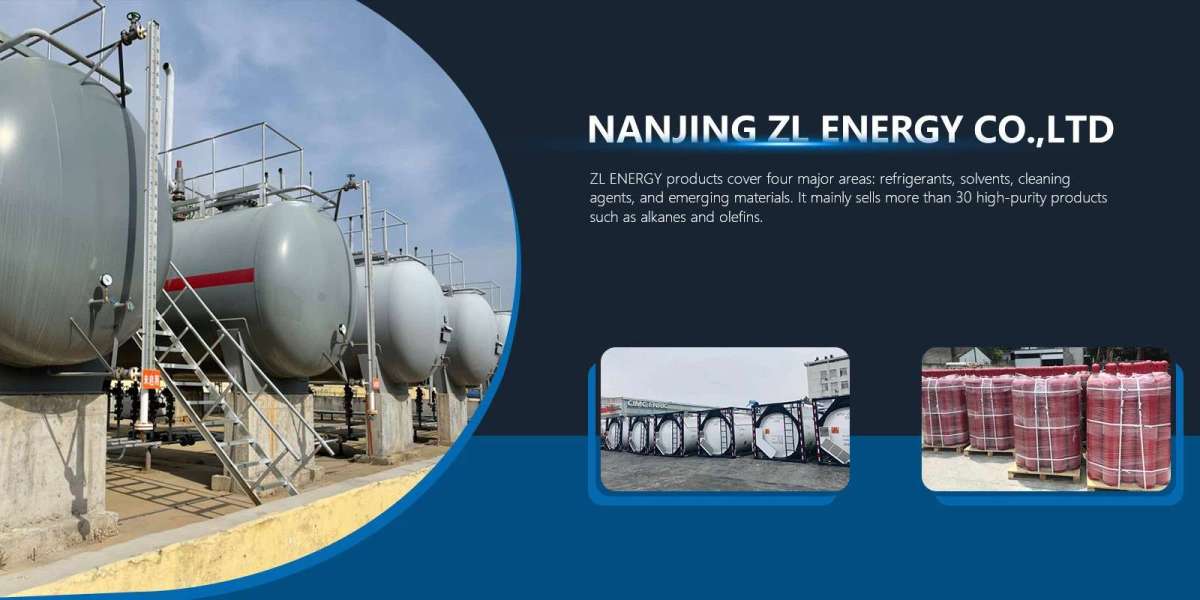The industrial landscape relies heavily on specialty chemicals to drive innovation, efficiency, and product quality across sectors like pharmaceuticals, energy, and materials science. Among the most notable compounds are Sulfur Hexafluoride, Sulfur Tetrafluoride, 1,3-butadiene, N-Pentadecane, and N-Nonadecane. Each plays a distinct role in modern industrial processes, from chemical synthesis to energy storage and advanced manufacturing.

Sulfur Fluorides: Precision in Industrial Applications
Sulfur Hexafluoride (SF₆) is a chemically inert, colorless gas known for its excellent insulating and arc-quenching properties. It is widely used in high-voltage electrical equipment, such as circuit breakers, transformers, and switchgear. Its stability makes it ideal for industries that require reliable performance under extreme conditions. However, SF₆ is also a potent greenhouse gas, prompting the development of alternative environmentally friendly solutions.
Sulfur Tetrafluoride (SF₄), in contrast, is highly reactive and primarily serves as a fluorinating agent in organic synthesis. It is used to convert oxygen-containing compounds into fluorides, which are crucial in pharmaceuticals, agrochemicals, and specialty materials. SF₄ requires careful handling due to its toxicity and reactivity with water, highlighting the importance of safety protocols in chemical industries.
1,3-Butadiene: The Backbone of Synthetic Rubber
1,3-Butadiene is a volatile, unsaturated hydrocarbon extensively used in the production of synthetic rubber and elastomers. Its unique chemical structure allows it to polymerize into materials used for tires, hoses, seals, and industrial gaskets. The demand for 1,3-butadiene continues to grow as automotive and construction industries expand, making it a critical raw material in modern manufacturing.
Long-Chain Alkanes: Stability and Versatility
Long-chain alkanes like N-Pentadecane and N-Nonadecane are saturated hydrocarbons that offer exceptional thermal stability and chemical inertness. Their applications are diverse:
Phase-Change Materials (PCM): Both compounds are used in thermal energy storage, electronics cooling, and temperature-regulating materials due to their stable melting points and high latent heat.
Lubricants and Specialty Oils: Their chemical stability and low reactivity make them ideal for lubricants, hydraulic fluids, and high-performance industrial oils.
Chemical Feedstocks: N-Pentadecane and N-Nonadecane serve as raw materials for the synthesis of detergents, surfactants, and specialty chemicals, contributing to various industrial products.
These compounds complement reactive chemicals like 1,3-butadiene and sulfur fluorides, offering stability where precision and safety are required.
Integrating Specialty Chemicals in Industrial Processes
Modern industries often combine these specialty chemicals in integrated workflows to maximize efficiency and quality. For instance, Sulfur Hexafluoride may be used in electrical systems alongside lubricants derived from N-Pentadecane to ensure smooth operation of machinery. In chemical synthesis, Sulfur Tetrafluoride and long-chain alkanes collaborate to create stable, functionalized materials.
Automation and digital monitoring now allow manufacturers to optimize production, maintain quality control, and reduce waste. By integrating real-time sensors, predictive maintenance, and AI-driven analytics, industries can safely manage reactive and stable chemicals simultaneously.
Sustainability and Future Trends
Environmental considerations are increasingly influencing the use of specialty chemicals. Efforts to reduce the greenhouse gas impact of SF₆, improve handling safety for SF₄, and develop bio-based long-chain alkanes are at the forefront of innovation. Additionally, energy-efficient production methods and recycling initiatives are becoming standard practices in chemical industries.
As demand for advanced materials grows, specialty chemicals will continue to play a critical role in sustainable industrial development. Companies investing in green technologies and safer chemical processes will gain a competitive advantage while minimizing environmental impact.
Conclusion
From Sulfur Hexafluoride and Sulfur Tetrafluoride to 1,3-butadiene, N-Pentadecane, and N-Nonadecane, specialty chemicals form the backbone of modern industrial processes. Their unique properties—ranging from reactivity to stability—enable innovation across energy, pharmaceuticals, materials science, and manufacturing.
By understanding the roles, applications, and safety requirements of these chemicals, industries can enhance efficiency, ensure product quality, and drive sustainable growth. In the rapidly evolving chemical landscape, mastery of specialty compounds is essential for future-ready operations. https://www.njzlchem.com/

![(Must-Know) Manufacturing-Cloud-Professional Exam Questions — Your [2024] Guide to Passing Salesforce Certification](https://www.flexsocialbox.com/upload/photos/2024/10/TLBd2i4RVWvgQXx7b3XQ_24_180e6d131ccc53c0d4163baa2e8362e0_image.jpeg)

